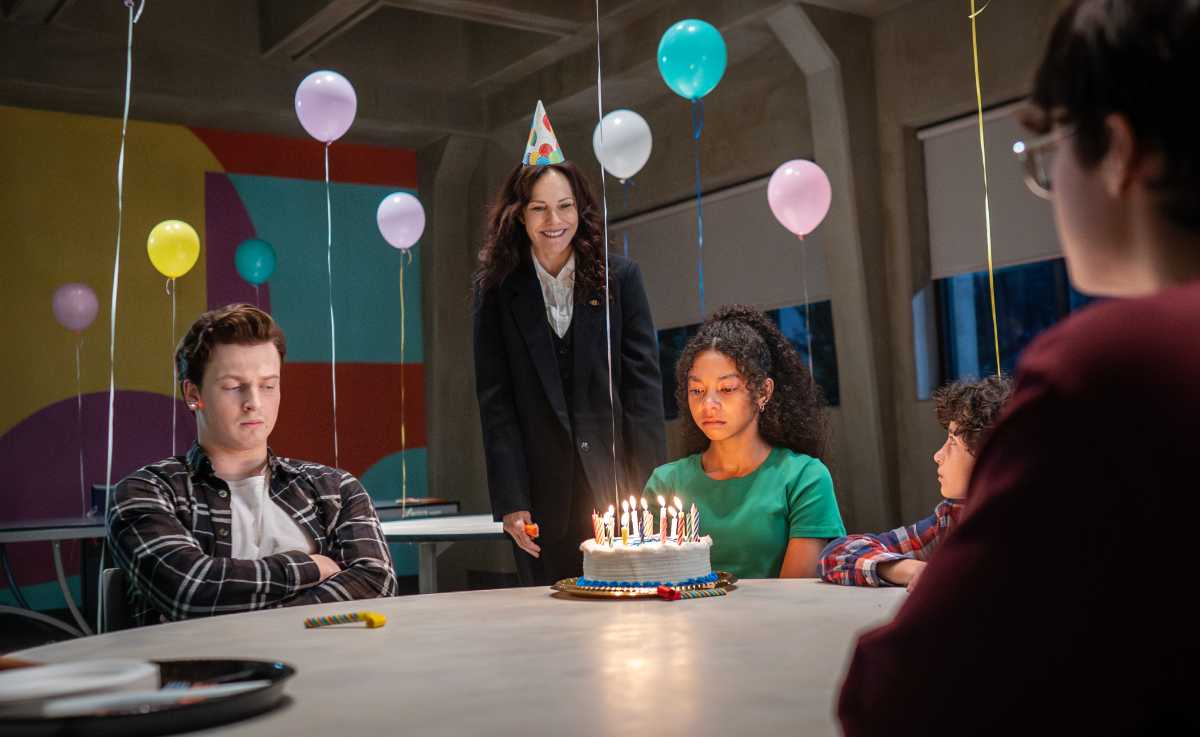
More people piled onto the 6 at the 51st Street station. The packed crowd surged one way, then reversed and flowed the other, pressing Stephen tighter against the warm metal pole in the center of the car, thick with hands, his lips sucking the knuckles of a tall, skinny guy with braids. A woman with a tribal neck tattoo had her face jammed into his shoulder, the sweaty, liver-spotted scalp of an old man pressed into the middle of his chest. Another surge from behind crushed them tighter, the thump-rattle-thump, thump-rattle-thump of the doors trying to close, a final surge packed them tighter, the doors closed, and the train jerked forward.
Jammed too tightly to look at their phones, no one wanted to look at each other so they stared up at the ceiling.
Stephen sucked in his gut. Only three more stations. He breathed the soupy air as sweat trickled over his ribcage. No air conditioning. August heat. Hot breath on his shoulder. Warm hands near his face. He tried not to panic but there wasn’t enough oxygen. Too many people were breathing this air.
The packed crowd leaned hard as the train took a curve, and the old man stumbled into Stephen, stepping on his toes. He didn’t remember the tracks turning between 51st and 42nd. The train rattled on too long. Had it gone express? Stephen managed a look out the windows but only caught lights flashing past. Then a squeal of brakes. Everyone rocked forward, then back, then silence. The doors didn’t open. Black tunnel walls pressed against the windows.
The conductor gargled over the PA: “…Experiencing…incident…due to…momentary…passenger…” Then silence.
Bodies tensed as people shifted their grips on the pole. Then, with a rattle, the engine died. People craned their necks in the sudden silence, unable to turn their shoulders.
The air got thick. Sweat ran down Stephen’s belly. A baby cried at one end of the car. Stephen needed to move, his knee throbbed, but Neck Tattoo crushed him into the pole, the old man leaned against his front, and Braids jammed him from the other side. Some tried to open the windows, but they were jammed. The doors between the cars wouldn’t open. The windows dripped condensation from the hot breath, then the train rocked from side to side, and they heard three distant explosions.
The lights went out. Phones came on, casting pale, underwater light over heads and shoulders. A few people tried to pry the doors open but couldn’t get any leverage. Someone banged their hands on the inside of the glass. The old man mumbled something down by Stephen’s belly button.
“What’d he say?” Neck Tattoo asked.
“I don’t know,” Stephen said.
The old man suddenly sagged against Stephen. There was no room for him to drop, and his weight crushed Stephen backward. His knee screamed. Then the weight lifted.
“Here, here,” Braids said.
He’d wrapped one arm around the old man, holding him up. Stephen saw sweat sheeting down Braids’ face.
“Grab my arms,” Braids said.
Stephen reached under the old man’s armpits and grabbed Braids’ forearms, holding up the unconscious old man.
“How long do we do this?” he asked.
“Until we’re rescued,” Braids said.
Their arms got slick and sweaty. Stephen felt his fingertips prune. After two hours, his shoulders felt like rocks, his kneecaps were broken glass, his hip sockets were cold sand.
“What’s your name?” he asked Braids.
“No way, man, I’m not doing that sinking ship stuff,” Braids said. “We’re getting out of here.”
Overheated passengers stripped. A mother began screaming, screaming for so long they became background noise. People prayed. The floor became muddied with waste. The air got rank. Neck Tattoo tipped warm water to Stephen’s lips and he sucked down the last of it.
After six hours phones began to die. The last one flared at hour eight, and then they were in the dark together, unable to tell if their eyes were open or closed, just wet bodies pressed together, meat packed in a can. They heard another distant rumble.
At first water was saved for the children, trying to keep them alive until they were rescued. By hour fifteen no one was under any illusion that a rescue was coming.
Stephen’s world narrowed to Neck Tattoo and Braids and the old man in his arms. His dry tongue swelled, filling his mouth.
“I think he’s dead,” Braids said.
His fingers cramped as he let go of Braids’ forearms, and the old man sank to the floor. Neck Tattoo steadied him with one arm. How many corpses stood around him? Neck Tattoo rested her head against Stephen’s back. That was OK.
The core of Stephen’s body got warmer and warmer, cooking him from the inside. He couldn’t tell where his body ended and Neck Tattoo’s began. The part of him that was Stephen floated away into the dark.
“You going to tell me your name?” he asked Braids finally, thickly.
Braids gave a thin, hissy laugh in the dark.
“You know,” he whispered. “I just refilled my MetroCard.”
Stephen thought it was the funniest thing he’d ever heard. Then, breathing each other’s stale breath, they died.
ABOUT THE AUTHOR:
Grady Hendrix is the award-winning author of "We Sold Our Souls," "Paperbacks from Hell," and "Horrorstör," and he knows that he will one day be found dead on the 6.




































